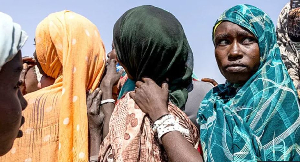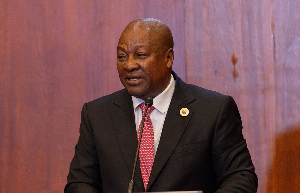Business News of Sunday, 30 October 2022
Source: www.ghanaweb.com
Has Ashanti Region become the hub of economic protests?
How Ashanti Region is becoming economic protest hub despite being NPP stronghold The Ashanti Region is undoubtedly a crucial zone to the electoral fortunes of the governing New Patriotic Party, NPP, but in recent weeks and months, it is proving to be a catalyst for protest against economic hardship. Long before the economy-related protests, the region saw a rise in political agitation from the area of infrastructure deficit to the lack of fulfilment of political promises. Typical cases in point are the attacks on Suame Member of Parliament, Osei Kyei-Mensah-Bonsu by artisans of the Suame Magazine who were protesting over the bad nature of their roads. Before that, the Mampongteng Chief threatened to lead a protest against the government over the abandonment of infrastructure projects in the area. Then there was also the Ashanti youth group so-called that threatened to campaign against all MPs in the region because the region was not benefiting from their presence in the legislature. In the past week, the region has hogged national headlines with business people issuing threats over an economic crunch that the government insists it is not entirely blamable for and which it is working assiduously to resolve. GhanaWeb looks at four instances where the Ashanti Region has protested against the government for economic reasons. Traders bloc threaten to close shops According to a Citi FM report, some trader groups and importers in the regional capital, Kumasi, are threatening to shut their businesses for two weeks to protest the continuous depreciation of the Ghana cedi. “At this moment, we are running at a loss. All our capitals are in a ditch," Nana Yaw Agyeman, the Deputy Secretary of the importers association in Kumasi, told Citi FM. "The inflation is killing us. It is collapsing all our finances, collapsing all our capital, and we cannot sit down for our capital to drain like that,” he said confirming the group of about eight was mobilizing members to begin the strike next week. Traders lock up shops Two weeks ago, the busiest business enclaves in the region became ghost towns after traders locked up their shops in protest of harsh economic conditions. A GNA report stated: The traders, most of whom deal in fast-moving consumer goods closed their shops on Monday, October 10, 2022, in protest of what they described as an unfavourable tax regime and the free fall of the Ghana cedis. The closures left the Pampaso and PZ areas, considered the busiest enclave in the Kumasi central business district empty while many traders who had come from near and far from Kumasi to buy some of these items were left stranded, the report added. It took the intervention of the Asantehemaa, Nana Yaa Konadu for the traders to agree to reopen their shops. The week after, the Ghana Union of Traders Association, GUTA, also embarked on a similar protest in solidarity with those in Kumasi. Their one-week planned closure also last two days after the Ga Mantse intervened. Akufo-Addo booed at Adum President Nana Addo Dankwa Akufo-Addo’s convoy suffered boos and jeers from bystanders in the Ashanti Region as they made their way through an area reported to be Adum. Despite being a stronghold of the ruling New Patriotic Party, NPP, Akufo-Addo’s convoy received uncharacteristic hoots, boos and jeers as it made its way through the Central Business District of Kumasi on October 17. As seen in videos shared via social media, some traders lined up along the stretch of the road booed away as the president and his convoy passed through the Adum Market to inspect the progress of work on the Kejetia/Central Market Project Phase II. The booing of the president’s convoy has largely been attributed to the current state of the Ghanaian economy and the general economic hardship in the country. Protest against GRA tax regime Management of the Ghana Revenue Authority, GRA was forced to call for a meeting with business operators in the Central Business Districts (CBDs) of the Ashanti Region after a tax standoff. The meeting of October 11, 2022, was called after business operators embarked on a sit–down strike over the duplicate payment of Value Added Tax (VAT) on products sold in the Kumasi metropolis. The business operators also complained about the GRA’s decision to assign tax officers to the offices of the business operators to ensure tax compliance and payment of the VAT among others. With the above, and with Accra having held a single protest action against the harsh economic environment, it is safe to state that the electoral stronghold of the NPP is becoming the hub of economic protests. SARA/PEN But speaking on Sammy Kay Media recently before the song’s official release today, October 28, Mzbel said her Asibolanga song is just for fun and not a means to court anyone’s displeasure. “Asibolanga is not a name. There’s nobody called Asibolanga. It basically means an angry person. It’s a spiritual language so you don’t need to understand or know its origin. There are things that nobody teaches but it’s a spiritual language. “I’m a Ga and we always label or give identity and names to things or persons. However, that doesn’t mean that’s the official name of that person or thing. It’s just an identity. Asibolanga is not a name, I’m just using it to sing. “I’m not referring it to Afia or anyone but if anyone accepts the song as a diss or whatever, well, then I can’t do anything about it,” she said.












